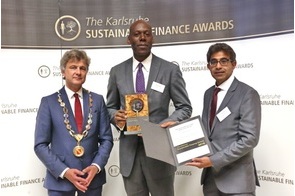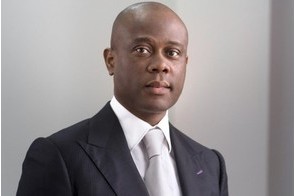Africa must stop buying what it already has

Summary
The future is still ours to claim. But it will not be given. It must be built – by Africans, for Africans, with partners who respect our agency and match our ambition.
Across Africa today, a quiet tragedy plays out every day. It is not the scarcity of resources or even a lack of ambition that holds us back. It is the deeper, more corrosive failure to fully believe in ourselves – to trust what Africa can produce, to invest in what Africans can create, and to trade first and foremost with one another.
Throughout the continent, the evidence is striking. Angola, for instance, imports $500 million worth of beef every year, even as Namibia – right next door – produces EU-grade beef at lower cost. Malawi purchases $48 million worth of maize every year, while Tanzania, a few hundred kilometers away, exports maize at nearly half that price. Zambia imports 360 million liters of fuel annually, despite Angola offering supply at prices up to 40% cheaper.
These are not isolated inefficiencies; they are symptoms of a systemic failure – one that cuts across our Regional Economic Communities (RECs). It is a failure of coordination, infrastructure, political will, and above all, of trust. Every year, Southern Africa alone forfeits an estimated $32 billion in potential intra-African trade due to these dysfunctions. According to the African Export–Import Bank’s 2024 Intra-African Trade Report, intra-African trade remains stuck at around 15% of total African trade volumes, compared to over 60% in the European Union and nearly 50% in Asia. The same pattern persists across West, Central, East, and North Africa.
We have the resources. We have the markets. We have the demographics. Yet, we remain trapped in a pattern of looking outward for what we already possess.
The cost of this failure is profound. It manifests in lost jobs for our youth, inflated food and energy prices for our families, wasted foreign exchange reserves, and increased vulnerability to global shocks. In the face of a fragmenting global economy – where supply chains are being redrawn, financial conditions are tightening, and climate risks are escalating – Africa’s dependency model is becoming ever more untenable.
Africa’s macroeconomic context today is precarious but not hopeless. According to the IMF’s April 2025 World Economic Outlook, the continent’s GDP growth slowed to 3.2% in 2024, down from 3.8% the previous year. Public debt remains elevated at around 60% of GDP for Sub-Saharan Africa. Inflation, although moderating, still averages 12.5%. Africa continues to pay the highest risk premiums globally to access capital markets, spending five times more on debt service relative to concessional finance opportunities.
But these macro indicators tell only a part of the story. The real challenge lies deeper: a fragmented economic space, underdeveloped regional value chains, and a structural infrastructure financing gap estimated by the African Development Bank (AfDB) at $68–108 billion annually.
If we do not fix these underlying problems, no amount of external financing will sustainably change our trajectory.
But there are rays of hope already on the horizon. Across the Regional Economic Communities, significant momentum is emerging. In ECOWAS, Nigeria’s energy diversification, Ghana’s fiscal stabilization, and Côte d’Ivoire’s agribusiness expansion stand out. In the East African Community, Kenya’s leadership in digital finance and Tanzania’s agricultural productivity gains are transforming local markets. In COMESA, Rwanda’s technology innovation and Ethiopia’s industrial park development signal industrial drive. In the Arab Maghreb Union, Egypt’s renewable energy capacity and Morocco’s manufacturing growth lead continental benchmarks. Meanwhile, SADC’s infrastructure corridors and green energy projects are reshaping trade connectivity. In ECCAS, investments in cross-border agriculture and logistics are strengthening food security.
These examples are not isolated – they reveal a broader continental ambition: that Africa already holds the solutions it seeks externally, if only it mobilizes them internally.
These realities echo the aspirations enshrined in the African Union’s Agenda 2063 – to build “an integrated, prosperous and peaceful Africa, driven by its own citizens and representing a dynamic force in the global arena.”
As Kwame Nkrumah, one of Africa’s foremost founding fathers, profoundly reminded us:
“It is clear that we must find an African solution to our problems, and that this can only be found in African unity.”
Trade agreements alone will not deliver this unity. Connectivity is not built on paper. Trust cannot be legislated into existence.
It demands investment. It demands alignment. It demands institutions that are not only technically competent, but politically committed to Africa’s sovereign, sustainable, and inclusive development.
Africa needs institutions that are fit for purpose – capable of scaling up financing to meet infrastructure gaps, driving regional project preparation, and supporting private sector growth, especially for SMEs and youth-led enterprises.
We cannot afford multilateral institutions stuck in 20th-century operational models while our realities evolve in the 21st century. We cannot afford delivery delays measured in years, when demographic and climatic pressures accelerate by the day.
The AfDB must lead this transformation. It must not simply lend more – it must lend smarter. It must not only catalyze finance – but foster local value addition. It must not merely align with global climate priorities – but champion African climate priorities: adaptation, resilience, and just energy transitions that deliver jobs and dignity.
Africa’s recovery is not a story of isolated reformers – it is the unfolding of a continental ambition rooted in resilience, innovation, and growing ownership. From energy diversification across West Africa, to digital financial leadership in East Africa, to industrial hubs in North Africa, to regional infrastructure development in Southern Africa, African economies are laying critical foundations for sustainable growth.
Countries undertaking bold reforms and investing in youth and climate-resilient economies deserve a multilateral partner that does not wait for perfect conditions but works alongside them to consolidate progress – with speed, predictability, and respect for national systems.
The African Development Bank must match their seriousness with institutional ambition, timely capital deployment, and decentralized operational delivery. It must recognize that a prosperous, integrated Africa is not only critical for continental stability but also for global economic resilience.
The challenges that Africa faces – youth unemployment, fragility, energy transition, climate shocks – do not stop at its borders. Rising irregular migration to Europe, estimated at over 150,000 arrivals annually by the end of 2024, reflects a growing desperation fueled by missed development opportunities at home. The economic cost of managing irregular migration across the Mediterranean alone has exceeded €11 billion for EU countries between 2015 and 2024.
Conversely, building resilient African economies benefits the world: expanding markets, enhancing global supply chain diversification, and stabilizing geopolitical flashpoints. Non-regional member countries of the AfDB – such as the United States, China, Japan, the EU, Canada, and South Korea – recognize this, increasingly framing their African engagement around mutual prosperity rather than aid. A stronger AfDB under visionary leadership would serve not only its African shareholders but also its non-African shareholders – by creating investable, growing economies that reduce systemic risks.
Development is not charity. It is a rational investment in global security and shared prosperity. And it must be treated with the seriousness it deserves.
Africa’s transformation will not be financed or executed from afar. It must be driven from within. Institutions like the AfDB must be judged by their proximity to African priorities, their agility in execution, and their credibility with African citizens – not only with rating agencies or donors.
That is the vision that I am committed to. A continent where Africa trades with Africa first. A continent where youth no longer migrate for survival but innovate for prosperity. A continent where infrastructure corridors unlock opportunity, not merely extraction. A continent where development banks serve the people – not the other way around.
The stakes could not be higher. According to UNCTAD’s 2024 World Investment Report, Africa’s share of global foreign direct investment remains stubbornly below 5%. Meanwhile, the financing gap for achieving the SDGs in Africa has ballooned to over $200 billion annually. If we do not act decisively – if we do not fix intra-African trade bottlenecks, close infrastructure deficits, and unleash regional markets – Africa risks missing the demographic dividend that could define the 21st century as the African century.
The future is still ours to claim. But it will not be given. It must be built – by Africans, for Africans, with partners who respect our agency and match our ambition.
Africa must stop buying what it already has. It must start believing in what it already is.
The time to act is now.
Dr. Sidi Ould Tah is a candidate for the AfDB Presidency with the election scheduled for May 2025.
Related
-
Access Bank wins Karlsruhe Sustainable Finance Awards
Barely twenty-four hours before receiving its Karlsruhe Sustainable Finance award for the third time, Access Bank was ...
-
Access Bank wins 2020 International Investor Awards
The awards recognised the businesses that consistently delivered first-rate service, innovation and performance.
-
Certification programme for impact fund managers launches
Gold Standard said its requirements ensure best practice impact investing that builds on IFC safeguards, the UNDP Equity ...










